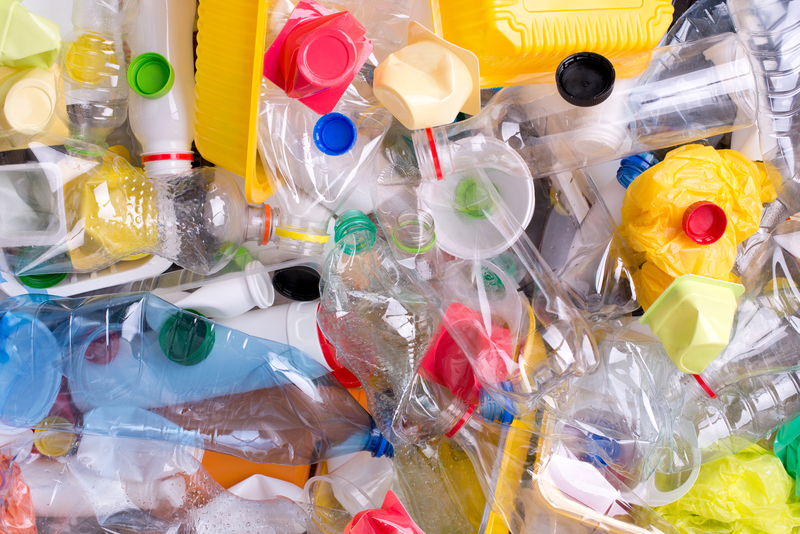Eco Solutions: Bamboo vs Plastic
Posted on 14/11/2024
As the world becomes increasingly aware of the environmental crisis, more people are looking for sustainable alternatives to everyday materials. Plastic, once lauded for its versatility and durability, is now recognized as a significant environmental pollutant. Bamboo, on the other hand, is emerging as a promising material that could help mitigate the adverse effects of plastic pollution. In this article, we will explore the characteristics, benefits, and implications of using bamboo and plastic, providing a comprehensive comparison to better understand which material truly qualifies as an eco-friendly solution.
Understanding Plastic
Plastic has been a revolutionary material since its inception in the early 20th century. It can be molded into a variety of shapes, is used in numerous applications, and is generally inexpensive to produce. However, its very properties--durability and inertness--pose significant environmental challenges. Plastics do not decompose easily; they can take hundreds to thousands of years to break down, often fragmenting into microplastics that contaminate soil, water, and even the food chain.
Environmental Impact
The environmental impact of plastic is multi-faceted:
- Pollution: Plastic debris is commonly found in oceans, rivers, and even remote natural reserves. Marine wildlife often ingest or become entangled in plastic waste, leading to severe health issues and fatalities.
- Resource Intensive: The production of plastic involves the use of fossil fuels, contributing to carbon emissions and resource depletion.
- Recycling Challenges: While recycling can mitigate some issues, only a small percentage of plastics are effectively recycled. Contamination and the mix of different types of plastic further complicate recycling efforts.

The Potential of Bamboo
Bamboo has recently gained attention as an eco-friendly material. Known for its rapid growth rate and sustainability, bamboo is often touted as a "green" alternative to traditional materials, including plastic. Unlike plastic, bamboo is biodegradable, natural, and renewable.
Environmental Benefits
Several factors make bamboo an attractive eco-solution:
- Rapid Growth: Bamboo can grow up to 91 cm (36 inches) within a 24-hour period under optimal conditions, making it a highly renewable resource.
- Biodegradability: Bamboo decomposes naturally and does not leave behind harmful residues, unlike plastic.
- Carbon Sequestration: Bamboo forests absorb more carbon dioxide and release more oxygen compared to many other plants, contributing to better air quality.
- Reduced Land Use: Bamboo can be harvested in 3-5 years, unlike trees used for wood, which may take decades to mature. This reduces land-use pressure and supports better land stewardship.
Comparative Analysis: Bamboo vs Plastic
Durability and Utility
Plastic is known for its durability, imperviousness to water, and ability to withstand extreme temperatures, making it suitable for a wide range of applications. Bamboo, while not as versatile in its raw form, is quite durable when processed correctly. Composite materials made from bamboo can achieve significant strength, making them suitable for various consumer products, including utensils, flooring, furniture, and even bicycles.
However, bamboo products generally require careful maintenance to prevent wear and tear. They are susceptible to damage from water and pests if not treated adequately. Moreover, bamboo's utility in packaging and single-use applications is still being explored and might not always offer the same convenience as plastic.
Cost and Accessibility
Mass production and widespread availability have made plastic an economical choice for manufacturers and consumers. Bamboo, although more environmentally friendly, often comes at a higher cost due to limited scalability and specialized processing methods. The cost barrier can be a significant challenge in promoting bamboo as a mainstream alternative to plastic.
That said, improvements in technology and increased investment in sustainable materials may reduce costs over time. Furthermore, as consumer awareness grows, a willingness to pay a premium for eco-friendly products could help bridge the price gap.
Health Implications
Plastic is notorious for leaching harmful chemicals such as phthalates, bisphenol A (BPA), and other endocrine disruptors. These chemicals are linked to various health issues, including cancer, reproductive problems, and developmental disorders. The leaching is exacerbated when plastics are exposed to heat or physical stress, a common occurrence in everyday use.
Bamboo, in its natural state or when minimally processed, poses fewer health risks. However, it's essential to consider that bamboo products sometimes go through chemical treatments to enhance durability, which may introduce some risk. It's crucial to seek out products certified as chemical-free or made using safe, eco-friendly processes.

Waste Management and Lifecycle
Plastic waste management remains a global challenge. Ineffective waste segregation, low recycling rates, and the difficulty of decomposing plastic waste contribute to severe environmental impacts. Incineration, another method of managing plastic waste, poses significant health risks due to the emission of harmful toxins.
In contrast, bamboo is easily renewable and biodegradable. At the end of its life cycle, bamboo products can be composted or left to decompose naturally without causing significant environmental harm. Effective waste management can transform bamboo waste into valuable resources, such as organic fertilizers, thus closing the loop in a circular economy.
Conclusion
The debate between bamboo and plastic is multi-dimensional and complex. While bamboo offers numerous environmental benefits due to its rapid growth, biodegradability, and carbon sequestration capabilities, plastic remains a highly versatile and cost-effective material. However, the severe environmental and health impacts associated with plastic are driving a significant shift toward sustainable alternatives like bamboo.
Still, it is essential to acknowledge that no single solution will resolve the environmental crisis. Instead, a multi-faceted approach that includes increased recycling efforts, reduced plastic usage, policy interventions, and the adoption of sustainable materials like bamboo and others will likely be necessary. As consumers, supporting eco-friendly products and making conscious choices can significantly impact reducing plastic pollution and promoting sustainable practices.
Ultimately, while bamboo may not completely replace plastic in all its applications, its role as a greener alternative is undeniable. With continued research, technological advancements, and increased consumer awareness, bamboo has the potential to significantly contribute to a more sustainable future.
Latest Posts
Resource Efficiency with Polystyrene Recycling
Essential Hacks for a Tidy Home




